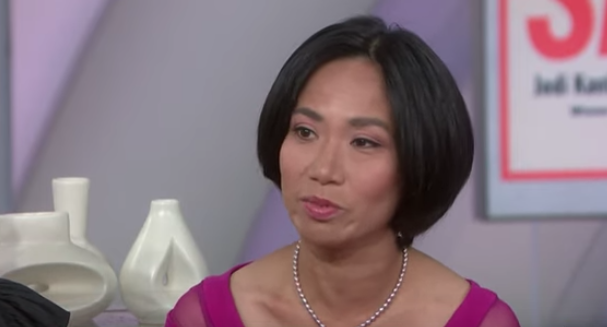Yesterday, in an op-ed for The New York Times, Rowena Chiu recounted the night in 1998 when Harvey Weinstein nearly raped her. A former assistant to the disgraced mogul, Chiu described the toxic workplace Weinstein created as well as the strict non-disclosure agreement she was pressured to sign when she and another survivor, Zelda Perkins, tried to fight back. Perhaps most crucially, Chiu explains the exact power dynamics Weinstein capitalized on when he assaulted her — the imbalances that would protect him from scrutiny for decades — “gender, race, seniority, and wealth.”
“The first power imbalance — that of man versus woman — was obvious,” Chiu wrote. “I was a woman in an industry in which women still struggle to be taken seriously. Harvey was a man in an industry in which men dominate, and he often used that dominance to claim sexual favors.” As anyone who has paid attention to the Weinstein coverage knows, this is the dynamic he took advantage of with all the women he preyed upon.
Complicating matters even further for Chiu, who is of Chinese descent, and by extension Weinstein’s other victims of color, was race. “My ethnicity initially marked me as different and inferior,” Chiu explained. “He assured Zelda that he wouldn’t harass me because he didn’t, as I remember it, ‘do Chinese or Jewish girls.’ Then later, he turned around and defined me in terms of sexual exoticism, telling me, just before he tried to rape me, that he’d never had a Chinese girl,” she recalled.
As Chiu described, the cultural expectations surrounding Asian women exacerbated the fetishization. “The idea of the Asian immigrant ‘model minorit’” is a cliché, but at least in my British-Chinese family, we were afraid of standing out. I was taught not to talk back — to aunties and uncles, to my parents, to my teachers, to perfect strangers. I learned the social benefits of being deferential, polite, and well behaved,” she detailed. “As with many Asian women, this meant that I was visible as a sex object, invisible as a person. Harvey may not have created this imbalance, but he and many others have capitalized on it, knowingly or unknowingly, to abuse women of color.”
The other two imbalances — seniority and wealth — secured Weinstein’s status in Hollywood and the wider world. He had friends in high places, and he could always buy more when needed. Chiu and many other Weinstein survivors didn’t have that option. “Harvey was a power player, and I was the lowest person on the totem pole,” Chiu wrote. “Assistants are the unseen work force that props Hollywood up, and yet we have zero leverage. I was invisible and inconsequential.” When she was working for Weinstein, Chiu “saw firsthand the influence that money could buy. Later, I was to discover that it could even buy silence,” she added.
Not only did these four imbalances collide during Weinstein’s attack, they also converged during Chiu and Perkins’ NDA negotiations. They could only find a small law firm to represent them and ended up backed into a corner, feeling they had no choice but to sign “[their] lives away in a complex 30-page document that [they] could not refer to.”
Chiu eventually accepted £125,000 (about $213,000) in exchange for never speaking about Weinstein or what he did to her. It would take 21 years — well after Weinstein’s fall and the rise of #MeToo — for her to feel confident enough to break the NDA.
Again, Chiu attributes her reticence to the four power asymmetries. “Many actresses, from the relatively unknown to the superstars, have come out with stories about Harvey. Yet the stories of assistants have gotten relatively little attention by comparison, and tragically, even fewer of those voices have been of women of color,” she wrote. Disparities in gender, race, seniority, and money have kept too many women from being able to speak their truth.
Chiu’s piece, which is well worth reading in full, is available over at the Times. You can watch Chiu speaking publicly about Weinstein for the first time, on “Today,” in the clip below.







